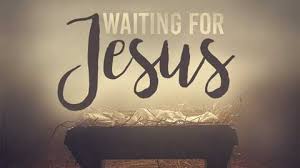 What goes on in our mind while we are waiting? Why are we so anxious? Why is waiting so difficult? What is waiting really about?
What goes on in our mind while we are waiting? Why are we so anxious? Why is waiting so difficult? What is waiting really about?
Waiting is the action of staying where one is or delaying action until a particular time or until something happens. It is the act of staying in one place or remaining inactive in expectation for something.
There are many views with regard to our “waiting tolerance.” Some are unique to specific generational differences while others are common to all people regardless of age, socio-economic factors, or gender.
Much of our anxiety can be eased based on the quality of the item one is waiting for. However, we still can feel a level of frustration that cannot be eliminated.
Psychology of Waiting
In a paper written by David Maister, The Psychology of Waiting Lines, he provides some insight into the psychology of waiting. The main point is that the actual time spent waiting may have little to do with how long the wait feels. What appears common is the whole issue of what to do with the time a person spends while waiting—the “unoccupied time”.
Unoccupied time is the window where the anxiety of waiting is the greatest. It is the time we spend in the present until the desired outcome occurs. Give people something to occupy their time, and the wait will feel shorter. How do you spend the unoccupied time while waiting?
“And now, Lord, for what do I wait? My hope is in thee.”
On a spiritual level, when one is waiting for healing, a word from the Lord, or emotional/financial release, the psychology of waiting takes on a distinctive difference. Our normal perspective on waiting changes in lights of who we’re waiting for (God) and our level of confidence in the final outcome (also God’s).
In today’s text (Ps. 39:7), David is crying out to God in a time of trouble. His initial frustration in waiting is later transformed into “hope” by declaring his trust in God, who has always shown Himself faithful to his people and His Covenant. David knows God will continue to do so, even when God’s specific plan for the future might not be fully understood. Comfort in waiting is based on an overwhelming confidence or hope in God personally.
Hope in the Waiting
While researching the topic of waiting , I was re-directed to the word “hope”. Hope is one of the four principles we explore during Advent season in which we commemorate mankind’s waiting for Emmanuel, the promised Messiah. Hope focuses attention on both “what awaits us” (Lam. 3:26; Ps. 37:34) and “the object of our wait” (Ps. 130:5-6).
In both the Old and New Testament the connection to hope and waiting is built on both a personal relationship and reliance on God.
Waiting in the secular world often causes frustration and anxiety. However, when we are anchored to God, waiting is filled with patience, encouragement, and enthusiasm (Acts 1:4).
Those who wait on God have the assurance that their waiting is for a specific purpose, which God is orchestrating.
Why do I hate to wait?
There are many reasons we have a problem with waiting. Do any of these characteristics impact your waiting on God?
- Impatience. We want what we want now. Impatience is the inability to control one’s desire for action (Numbers 20:10-12).
- Pride. We operate with an inflated opinion of what’s the best answer or solution to our problem or situation. Pride is the conceited sense of one’s superiority (Hosea 7:8-10)
- Independence. “I am the master of my fate: I am the captain of my soul.” Independence is the need to control one’s affairs apart from outside influences (Luke 15:12-16), even God.
- Stubbornness. Who can talk a fool out of his folly? Stubbornness entails the trait of being difficult to handle or overcome (Proverbs 26:3-5)
Experiencing God in the Wait
As believers, we are not exempt from suffering and experiencing tragedy, yet we can face the future expectantly, waiting for the movement of God in our life.
We may have to wait a while for the full experience of the good that God intends for is, but be assured, God is fully committed to everyone who makes a faith commitment to him.
“Therefore the LORD waits to be gracious to you; therefore he exalts himself to show mercy to you. For the LORD is a God of justice; blessed are all those who wait for him”. Isaiah 30:18





